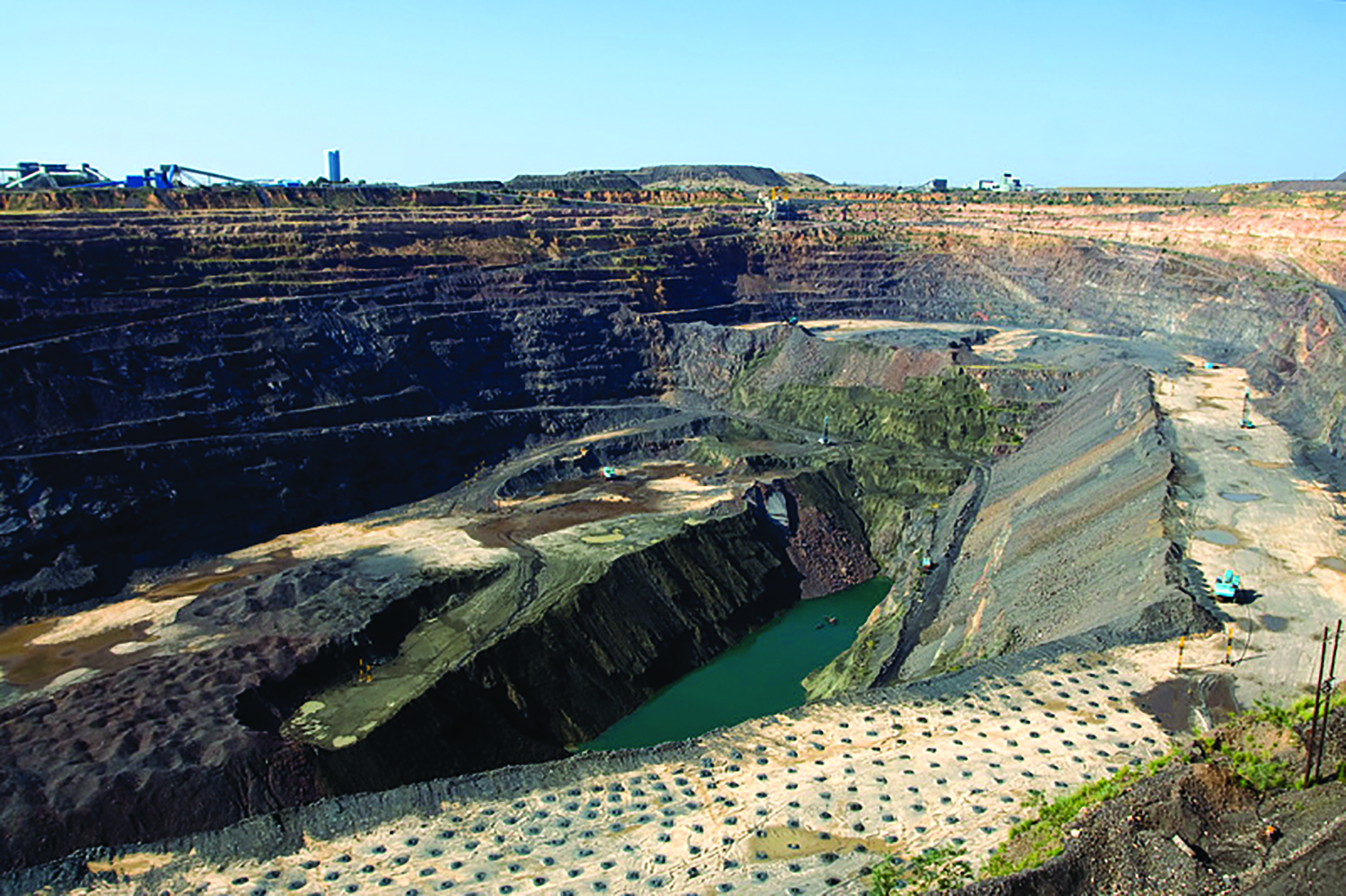
Debswana’s Jwaneng mine (above) is a major sour of diamonds in Botswana. (Photo: Debswana)
By Gavin du Venage, African Editor
For more than 50 years, diamond producer de Beers and the Botswanan government have partnered selling the country’s diamonds. This highly profitable relationship is now under threat, as Botswana considers walking away from the deal.
Together, the two have, since the 1960s, held a joint venture company Debswana, that produces most of the country’s precious stones. Debswana supplies De Beers with 70% of its rough diamonds and a third of the country’s GDP. Largely thanks to Debswana, Botswana is now the world’s largest diamond producer as measured by dollar value.
Debswana itself is a 50-50 venture, but around 75% of its diamonds are sold to De Beers, and the remaining quarter to Botswana. The current partnership agreement was up for renewal in June.
Botswana president Mokgweetsi Masisi has said the agreement is outdated and needs to be reviewed. In March, Masisi told a gathering of reporters in Gaborone that Botswana intended to seek other outlets for its diamond resources.
“Besides the fact that the diamonds are ours, it doesn’t make sense for us to continue to relegate ourselves to participating in the rough space only,” he said. “So, it’s only logical that we want more and we are going to get more. But through negotiation.”
De Beers counters that the joint venture is a model for not only diamond producers, but other mineral producers as well. The government of Botswana also owns a 15% stake in De Beers itself, above its 50% holding in Debswana. This, together with its cut of Debswana profits, as well as taxes and royalties earned, brings Botswana’s cut closer to 80%, De Beers says.
Botswana also gets access to de Beers’ global network of customers and sales points. The company has its own branded stores operating under the company name. It also holds 10 highly-anticipated sales each year that bring together the world’s leading buyers.
These sales, or ‘sites’ as they are called are held in the Botswanan capital Gaborone, having been moved from London a decade ago. At the same time, a growing industry of diamond industry workers saw around $1 billion in rough gems processed in the country in 2022, according to De Beers figures. More than 4,000 people now work in diamond processing in Botswana, up from near zero 20 years ago.
Botswana however appears determined to re-negotiate the terms of its agreement with De Beers. It has also backed up its position with action, by acquiring a 24% stake in diamond trader HB Antwerp. As part of the deal, Botswana’s state-owned Okavango Diamond Company will supply the gem trader and processing firm with an undisclosed quantity of rough diamonds for five years.
Industry insiders have questioned the deal. HB Antwerp is barely 3 years old, and has little by way of a track record, in an industry where relationships can span a century and deals are often concluded on a handshake.
Another concern, is that other African countries are closely watching the issue and may use the outcome to influence their own negotiations with mining companies.
Namibia’s Minister of mines and energy Tom Alweendo says the government will consider following in Botswana’s footsteps and increase its revenue share with De Beers by negotiating a bigger revenue share from local diamonds.
It’s own agreement with De Beers ends in 2026 and it could be the time to rethink the current relationship, Alweendo told state TV. “The time when we come to review the agreement, we will look at increasing (our share) to something else.”
This comes at a particularly challenging time for the diamond industry. The world’s largest producer Russia is under international sanctions, although diamonds are still finding their way into global markets. The EU said in May it wants to impose full sanctions on Russia’s diamond production and close remaining loopholes.
This will likely disrupt global supply chains. Russia provides a third of global diamond demand.
De Beers for its part hopes to repair the fraying relationship and move forward. Co-chair Bruce Cleaver says the lengthy arrangement made its survival inevitable.
“We’ve been in a marriage for a long time and we are going to continue being in a marriage for a long time,” Cleaver said.






